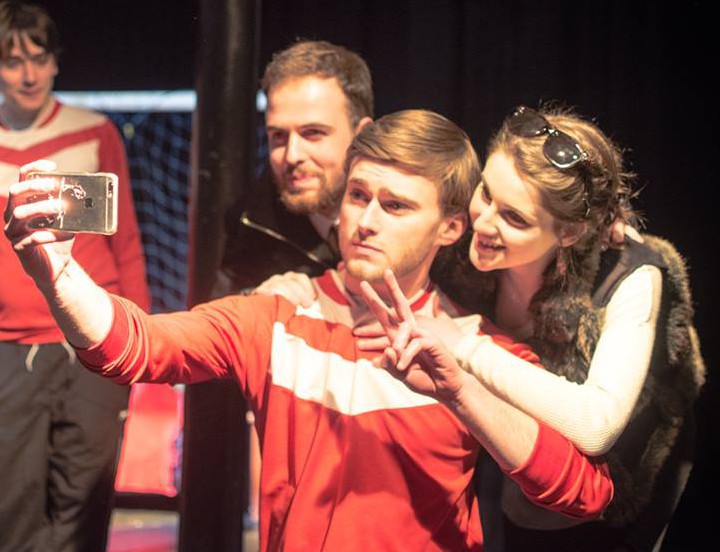“A Fringe Institution”
Editorial Rating: 4 (Outstanding)
Gone are the days where you can have a glass of lunch and return to work. It is hard enough to get a way with a couple of snifters let alone get full-blown trollied. So as one of those who hanker for the good, old days it was pleasing to see the old ways continuing at Sh!t-faced Shakespeare.
The premise is simple. A cast of classically trained actors perform a whistle-stop Shakespearean play (this year: Romeo and Juliet). The twist being that one of the cast is, well, shit-faced.
And boy was she shit-faced.
The compere got the audience going outlining exactly how much the actor had put away. She explained how some audience members could get involved. There was a genuine buzz (NB: not easy in the EICC! A venue that is generally reserved for dreary conferences about tax).
How much had she drunk? A bottle of lager and half a bottle of voddie. That’s a decent knock. A cider was also mentioned.
The compere was involved throughout to intervene throughout as an ad hoc health and safety consultant: running on to ensure the drunk actor doesn’t actually play with a sword; ensuring the drunk cast member didn’t fall into the crowd; reminding the cast to do some Shakespeare etc.
The show started with a small dance scene. It was very obvious, very quickly which one of the cast was drunk. The evening I went along it was Benvolio (Maryam Grace) although I believe the night before it had been Juliet.
She, of course, absolutely steals the show whilst the rest of the cast desperately try to keep up as she does everything in her power to knock them off track. If there was any semblance of a fourth wall Grace rampages through it at every turn.
There was one hilarious moment of audience dialogue where Grace drops the ‘C bomb’, the compere runs on to tell her off and Grace gets the audience to agree that in Scotland the word really is a friendly greeting. At another point she whipped the audience into a frenzy by shouting ”Fuck the patriarchy”. Throughout she is gold-dust and the audience absolutely love her.
Admittedly, at points some actual high-quality Shakespeare breaks out but never for too long as Grace tramples in. The other actors just about manage not to be put off entirely and adeptly manage the mayhem that is ensuing around them and improvising their own gags.
Somehow, despite all this, the show just about runs to time and the feels incredibly slick. I’d be keen to see it again to see Grace sober and one of the others drunk (Romeo leathered would, I think, be quite something).
It is easy to see why this is a Fringe institution. The venue was full and the crowd cackled away throughout. It was clear that many have seen the show, or at least the concept, before and return for more… but isn’t that quite something when there is so much competition here in August?
I was as sober as the rest of the cast and, I suspect, that had I sunk a few beforehand the show would have been an entirely different beast.
Come for the concept. Stay for the Shakespeare. Get some beers in and go and see this.
















You must be logged in to post a comment.